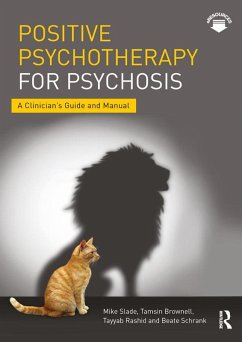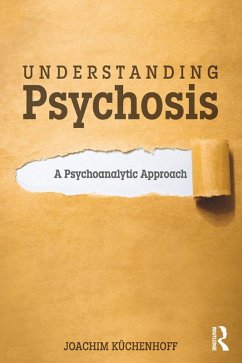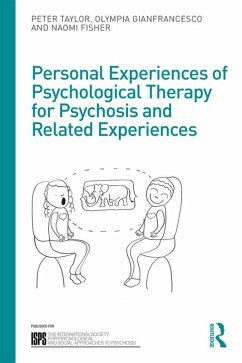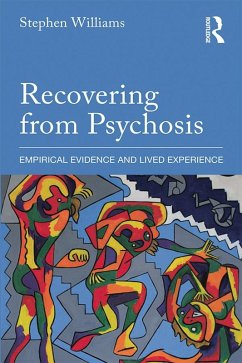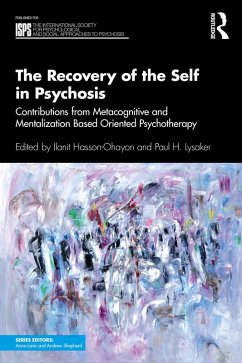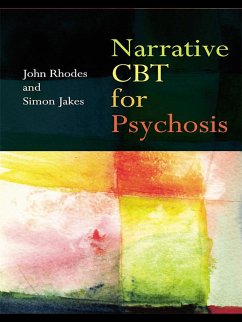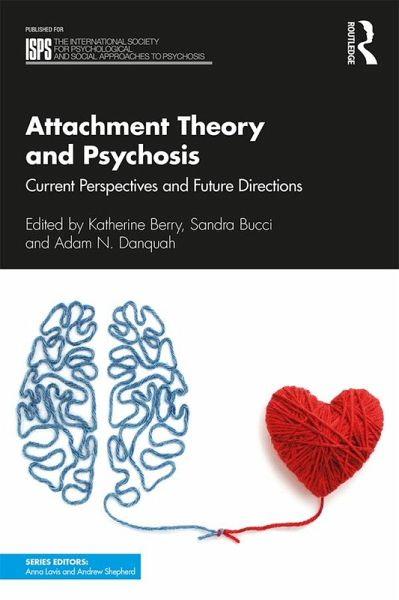
Attachment Theory and Psychosis (eBook, PDF)
Current Perspectives and Future Directions
Redaktion: Berry, Katherine; Danquah, Adam N.; Bucci, Sandra
Versandkostenfrei!
Sofort per Download lieferbar
35,95 €
inkl. MwSt.
Weitere Ausgaben:

PAYBACK Punkte
18 °P sammeln!
Attachment Theory and Psychosis: Current Perspectives and Future Directions is the first book to provide a practical guide to using attachment theory in the assessment, formulation and treatment of a range of psychological problems that can arise as a result of experiencing psychosis.Katherine Berry, Sandra Bucci and Adam N. Danquah, along with an international selection of contributors, expertly explore how attachment theory can inform theoretical understanding of the development of psychosis, psychological therapy and mental health practice with service users with psychosis. In the first sec...
Attachment Theory and Psychosis: Current Perspectives and Future Directions is the first book to provide a practical guide to using attachment theory in the assessment, formulation and treatment of a range of psychological problems that can arise as a result of experiencing psychosis.
Katherine Berry, Sandra Bucci and Adam N. Danquah, along with an international selection of contributors, expertly explore how attachment theory can inform theoretical understanding of the development of psychosis, psychological therapy and mental health practice with service users with psychosis. In the first section of the book, contributors describe the application of attachment theory to the understanding of paranoia, voice-hearing, negative symptoms, and relationship difficulties in psychosis. In the second section of the book, the contributors consider different approaches to working therapeutically with psychosis and demonstrate how these approaches draw on the key principles of attachment theory. In the final section, contributors address individual and wider organisation perspectives, including a voice-hearer perspective on formulating the relationship between voices and life history, how attachment principles can be used to organise the provision of mental health services, and the influence of mental health workers' own attachment experiences on therapeutic work. The book ends by summarising current perspectives and highlighting future directions.
Written by leading mental health practitioners and researchers, covering a diverse range of professional backgrounds, topics and theroetical schools, this book is significant in guiding clinicians, managers and commissioners in how attachment theory can inform everyday practice. Attachment Theory and Psychosis: Current Perspectives and Future Directions will be an invaluable resource for mental health professionals, especially psychologists and other clinicians focusing on humanistic treatments, as well as postgraduate students training in these areas.
Katherine Berry, Sandra Bucci and Adam N. Danquah, along with an international selection of contributors, expertly explore how attachment theory can inform theoretical understanding of the development of psychosis, psychological therapy and mental health practice with service users with psychosis. In the first section of the book, contributors describe the application of attachment theory to the understanding of paranoia, voice-hearing, negative symptoms, and relationship difficulties in psychosis. In the second section of the book, the contributors consider different approaches to working therapeutically with psychosis and demonstrate how these approaches draw on the key principles of attachment theory. In the final section, contributors address individual and wider organisation perspectives, including a voice-hearer perspective on formulating the relationship between voices and life history, how attachment principles can be used to organise the provision of mental health services, and the influence of mental health workers' own attachment experiences on therapeutic work. The book ends by summarising current perspectives and highlighting future directions.
Written by leading mental health practitioners and researchers, covering a diverse range of professional backgrounds, topics and theroetical schools, this book is significant in guiding clinicians, managers and commissioners in how attachment theory can inform everyday practice. Attachment Theory and Psychosis: Current Perspectives and Future Directions will be an invaluable resource for mental health professionals, especially psychologists and other clinicians focusing on humanistic treatments, as well as postgraduate students training in these areas.
Dieser Download kann aus rechtlichen Gründen nur mit Rechnungsadresse in A, B, BG, CY, CZ, D, DK, EW, E, FIN, F, GR, HR, H, IRL, I, LT, L, LR, M, NL, PL, P, R, S, SLO, SK ausgeliefert werden.




